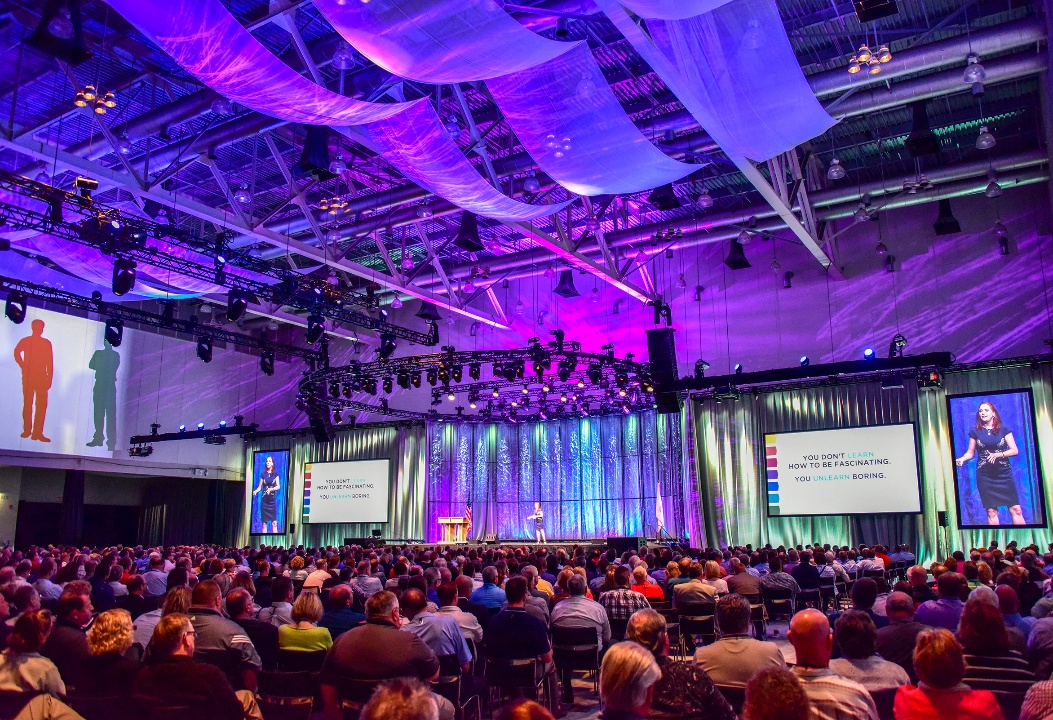Take Full Advantage Of Involvement with Interactive Elements in Event Productions
Take Full Advantage Of Involvement with Interactive Elements in Event Productions
Blog Article
Comprehending How Events Production Works: A Comprehensive Review of the Process
The intricacies of event manufacturing demand a systematic strategy that integrates multiple phases, each playing a crucial role in the general success of an occasion. From the initial planning and concept growth to the meticulous sychronisation of logistics, every component must straighten effortlessly to achieve the preferred end result. Understanding the subtleties of budgeting, source allotment, and on-site administration is essential for any type of specialist in this field. As we check out these parts further, it becomes noticeable that the procedure is not just about execution yet likewise concerning continuous improvement and calculated analysis. What understandings can we glean from each phase?
Initial Planning and Concept Development
Effective first preparation and principle growth act as the structure for successful events manufacturing. This stage involves specifying the event's function, target market, and wanted end results. A clear vision is important; it overviews all subsequent decisions and helps line up the team's efforts towards a common objective.
Throughout this phase, brainstorming sessions can be vital. Engaging stakeholders, including customers, enrollers, and prospective attendees, fosters a joint setting that produces ingenious ideas. In addition, complete market research study ought to be conducted to recognize patterns, preferences, and potential obstacles.
When the concept is developed, it is important to create a detailed occasion overview. This summary must include the occasion's theme, layout, and essential tasks. Establishing a timeline is just as crucial, as it helps to handle deadlines and tasks effectively.
Budgeting and Source Appropriation
With a solid concept in location, interest needs to transform to budgeting and source appropriation, which are vital components in executing the event effectively. A distinct spending plan offers as a roadmap, describing all anticipated prices and readily available sources - Event Productions.
Source appropriation entails assigning both financial and human sources to numerous jobs and parts of the occasion. Prioritization is crucial; essential elements ought to receive adequate financing while much less essential facets may call for a more traditional strategy. Contingency planning is crucial-- designating a section of the budget plan for unexpected expenditures can alleviate monetary risks.
On top of that, efficient communication among team participants concerning budget restraints promotes collaboration and advancement. This promotes the liable usage of sources and encourages imaginative services to remain within budget plan. Ultimately, a calculated method to budgeting and source allocation lays the foundation for a successful occasion, allowing organizers to focus on supplying a memorable experience for participants while maintaining financial honesty.
Logistics and Coordination
Browsing the complexities of logistics and sychronisation is essential for the seamless implementation of any occasion. This stage includes thorough planning and organization to make certain that all components function in consistency. Key aspects consist of place selection, transport setups, and the scheduling of different tasks.
This includes understanding the layout, access points, and available resources. Working with these elements requires collaboration with vendors, suppliers, and transportation solutions to make certain prompt distributions and pickups.
An additional important aspect is the development of a comprehensive timeline that describes all logistical components leading up to the event. This timeline serves as a roadmap, detailing key landmarks and target dates for jobs such as tools setup, providing solutions, and audiovisual setups. Routine interaction with all stakeholders is essential to attend to any type of potential issues proactively.
Implementation and On-Site Administration
Successful execution and on-site administration are vital for transforming thorough strategies into fact throughout an event. This stage involves the seamless control of different elements, making certain that every information aligns with the well-known vision. On-site managers play a pivotal role, working as the main point of interaction among suppliers, staff, and stakeholders. Their capacity to make real-time decisions can dramatically affect the occasion's success.
A distinct timetable is vital, offering as a roadmap for all tasks. Event supervisors must make sure that setup happens promptly, adhering to timelines for sound checks, providing shipments, and visitor arrivals. Effective analytical abilities are additionally important; unforeseen obstacles can arise, needing fast thinking and versatility to preserve the occasion's circulation.
This level of engagement not only boosts the total experience yet likewise shows the professionalism of the event group. Inevitably, successful implementation and on-site monitoring joint on Visit Your URL in-depth preparation, efficient communication, and a dedication to supplying a phenomenal occasion for all included.

Post-Event Evaluation and Comments
The culmination of any type of occasion lies not only in its implementation however likewise in the thorough examination that adheres to. Post-event assessment is crucial for identifying the general success of the occasion and identifying areas for enhancement. This procedure usually entails gathering feedback from different stakeholders, consisting of participants, suppliers, and team members, to acquire a detailed viewpoint on their experiences.
To structure the assessment, event coordinators often make use of meetings and surveys, concentrating on essential efficiency indications such as participant satisfaction, logistical efficiency, and budget plan adherence. Evaluating this data enables coordinators to examine whether the occasion fulfilled its purposes and to pop over to these guys recognize the toughness and weak points of the implementation.
By systematically resolving comments and implementing adjustments, event professionals can improve their approaches, ultimately leading to even more impactful and effective occasions. In final thought, post-event analysis is an important action in the occasion manufacturing process that makes sure ongoing development and quality in future ventures (Event Productions).
Verdict

The ins and outs of event manufacturing need a methodical technique that integrates several stages, each playing a crucial role in the total success of an event.With a strong principle in place, focus must turn to budgeting and source allocation, which are important components in carrying out the event effectively.Resource allocation involves assigning both financial and human resources to various jobs and elements of the event. Inevitably, a strategic strategy to budgeting and source allocation lays the foundation for an effective my latest blog post occasion, making it possible for coordinators to concentrate on supplying a remarkable experience for attendees while keeping financial honesty.

Report this page